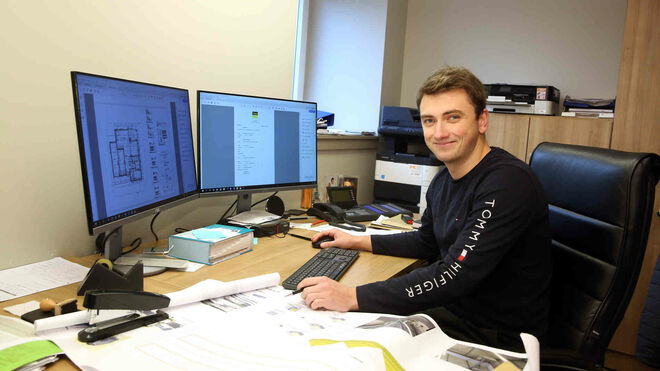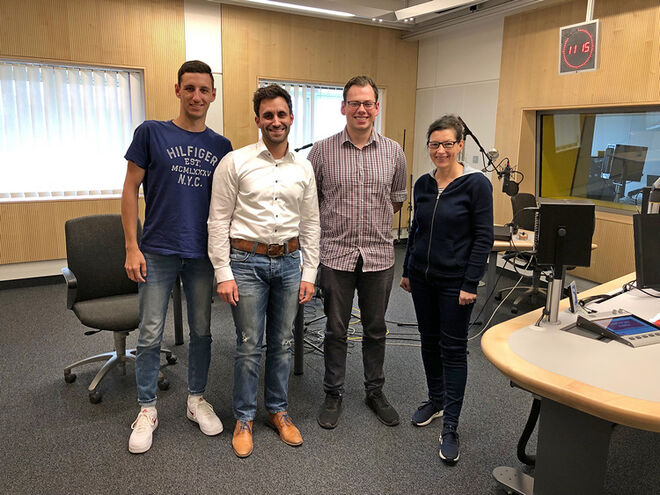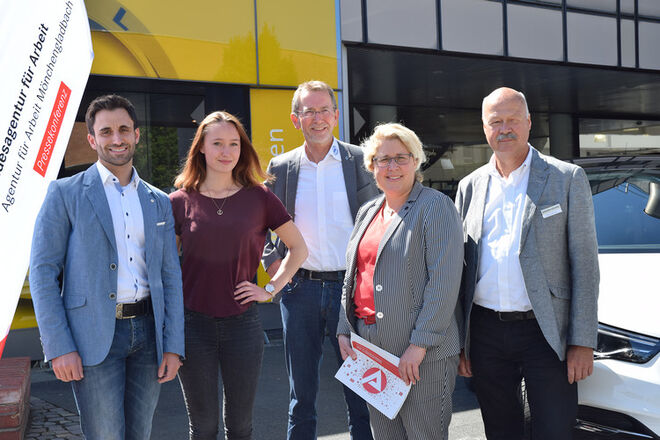Photo: Markus Rick/rimapress
Niklas Roßbach started the Degree programme "Craft Management" in 2015. It includes the apprenticeship, the bachelor's degree and the master craftsperson's degree.
The skilled trades guild is having a hard time; young talent is scarce. High school graduates in particular prefer college to work, which is not infrequently done with hands and feet. A triple degree programme is designed to fill this gap. In Mönchengladbach, the Degree programme in Craft Management, which combines apprenticeship, bachelor's degree and master craftsman's course, started in 2015. Niklas Roßbach (23) is one of the first to start. Roßbach learned the trade of plant mechanic in his parents' business.
One thing quickly becomes clear: the studies are not easy. "We were twelve people when we started. Now we're down to four," says Roßbach. All four are high school graduates, although a completed apprenticeship would also suffice. That would perhaps even reduce the workload. After all, in addition to the time spent at the company, there are the lessons at the vocational school, the lectures in the lecture hall and the examinations at the school for master craftspeople. The standard time to degree is estimated at just five years, although a full-time apprenticeship and a bachelor's degree each already add up to three years.
"It's already scheduled so that we have Fridays off, otherwise it doesn't work," says the 23-year-old. Lectures run from 5 to 8:30 p.m. on Fridays and 8:30 a.m. to 5 p.m. on Saturdays. Students who then have a five-day week at work behind them have a correspondingly difficult time. René Steinwartz, Degree Programme Coordinator at the Hochschule Niederrhein, also confirms this. "They're just flat," Steinwartz says. "It's quite intense, you just have to say."
Roßbach is fortunate that his father is also his instructor and allows him the time he needs to learn. Frank Roßbach (53) sees it pragmatically: "The training company has to decide wholeheartedly in favor of it. After all, he wants to have a highly qualified employee. And for me as a father, it's nice to know that someone is getting on board."
During the apprenticeship, Niklas Roßbach got to know the normal everyday life in the heating and plumbing company. "When I've installed a bathroom or a heating system together with the fitter, it's been a nice feeling to look at it and know what I've accomplished." He never had that feeling in school, he said. In the meantime, he has passed the subject-related examinations at the school for master craftspeople, and works mostly in the office. He plans, calculates and takes customer inquiries. He manages the trade, just as the Degree programme stipulates.
While preparing for the master's examinations (Meisterprüfung ), however, he had to cut back at the university. "School for master craftspeople and written examinations together don't really work," he says looking back. As a result, he has to make up some of the lectures, and his studies are lengthening accordingly. "But I don't think any of us will make it in the standard time to degree."
The comparatively young Degree programme is still very much in transition, he says. "The university asks us intensively for our feedback, and it works well in the small groups," Roßbach reports. He is bothered, however, by the fact that the business management lectures are very general. "I would like to see more concrete examples from the trade."
There is still time before Niklas Roßbach takes over from his father. Until then, he also wants to work in other companies for a few years. "To prevent company blindness," confirms Frank Roßbach.
Source: Rheinische Post
























